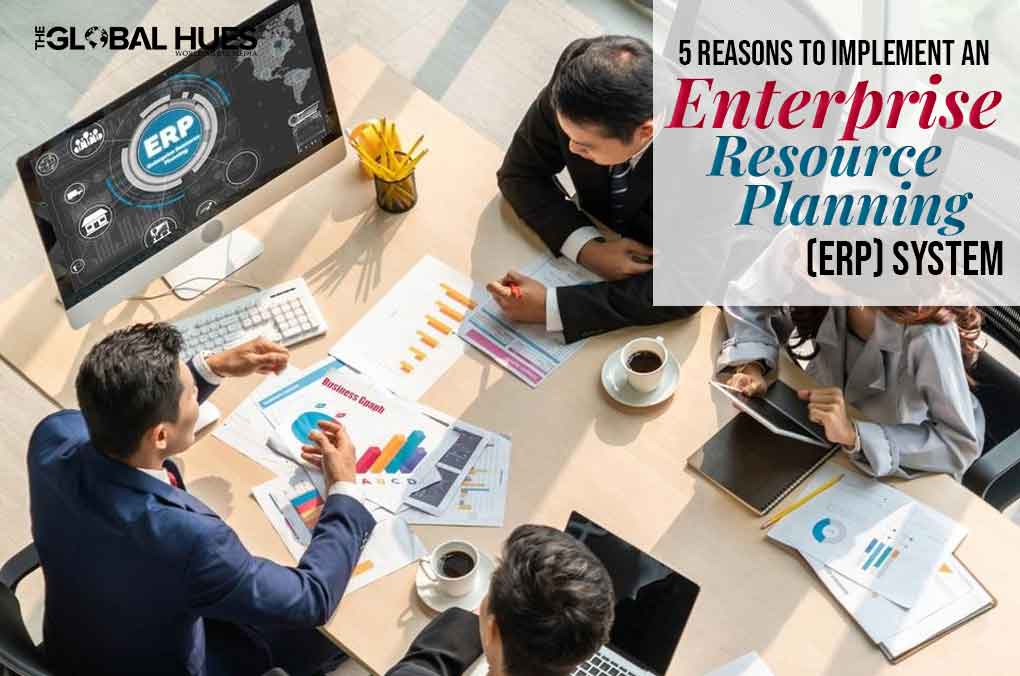In today’s increasingly digital world, businesses need an organized and efficient system for managing operations. One powerful tool to help businesses achieve this level of organization and efficiency is an Enterprise Resource Planning (ERP) system.
An ERP system helps organizations optimize their internal processes by creating a unified information platform that connects all departments’ data into one central system, giving users a comprehensive view of every business function and allowing businesses to streamline operations and make more informed decisions.
In this article, we’ll explore the key benefits of implementing an ERP system in detail so you can evaluate whether the technology will benefit your business.
Improves Visibility
Enterprise Resource Planning (ERP) systems provide organizational transparency and allow companies to optimize their operations. With ERP software, it’s possible to get comprehensive insights into business performance in real-time.
This level of visibility lets corporate leaders instantly identify areas of inefficiency or potential problems, allowing them to act earlier and better position themselves for future success.
Additionally, ERP streamlines day-to-day management tasks and decision-making processes so managers can benefit from higher accuracy and speed when tackling problems.
Investing in an ERP system ultimately improves visibility and provides organizations with important information that can spur success and unlock additional value for customers.
Saves You Money
Implementing an Enterprise Resource Planning (ERP) system within your organization opens up a variety of potential cost savings.
ERP systems can significantly reduce the manual labor needed in managing data because it is all stored, updated, and managed automatically.
You will also save money on software as there is no need to purchase multiple software programs when they are all included in one ERP system – making it more cost-effective than other solutions.
Lastly, an ERP system’s automated processes allow for streamlining tasks so that activities such as ordering items and completing financial statements become much quicker and easier to accomplish.
This allows for a significant reduction in time spent managing operations, resulting in major cost savings down the line. The money you save using an ERP system could be used elsewhere to expand or invest in your business.
Better Operational Efficiency

ERP systems integrate processes from different departments and can easily store, manage, and analyze large amounts of data. This allows organizations to streamline their operations, respond readily to customer demand, and make decisions backed by insights from real-time data.
Another benefit of using an ERP system is that it allows businesses to automate tedious back-office and repetitive tasks so employees can focus on more value-added activities.
Furthermore, reducing the human error common in manual processes helps organizations in improving accuracy while also helping increase customer satisfaction and reduce operating costs.
You Get Happier Clients
Adopting an Enterprise Resource Planning (ERP) system can bring tremendous benefits to a business. Not only will it create smoother, more automated processes and improved management of resources, but it can result in happier clients too.
When accessing data is easier and information is simpler to locate, businesses can better serve clients with the services they need in a timely manner.
Also, when mistakes are less likely, thanks to automation and streamlined processes, clients will be far less likely to experience errors or delays, which could lead to frustration or dissatisfaction.
An ERP system can eliminate gaps in efficiency that arise from manual processes and disconnected systems, meaning clients get the reliable experiences they expect from the businesses they choose to do business with.
You’ll Have Accurate Records
One of the key advantages of implementing an Enterprise Resource Planning (ERP) system is that it can help companies improve accuracy in record-keeping for their operations.
Such accuracy leads to improved decision-making, allowing the organization to control its resources better and minimize errors or missteps.
At its core, an ERP system provides organized and centralized access to data which can be used by staff to quickly reference past transactions and historical trends that otherwise would be difficult to track down with more manual procedures. Additionally, an ERP offers robust data analysis capabilities, enabling businesses to derive actionable insights without costly and time-consuming manual data analysis.
This drives efficiency across various departments and makes company activities predictable and repeatable, as any necessary changes can be performed without error in a timely fashion.
Having accurate records is one of the many ERP benefits organizations should consider when looking for ways to improve their operations management.
Conclusion
Enterprise Resource Planning systems lead to success for a business in countless ways. These five reasons are only the beginning of a long list detailing all the advantages an ERP system offers your company.
After reading this, you should be more than convinced that an ERP system is essential for taking your organization to the next level. Now that you know how beneficial an ERP can be, it’s time to learn how to operate various leading ERP solutions and get the most out of your investment. Several organizations offer you the chance to get certified. You can browse through this SAP certification list, or try one of Microsoft’s certifications depending on your ERP vendor of choice.




